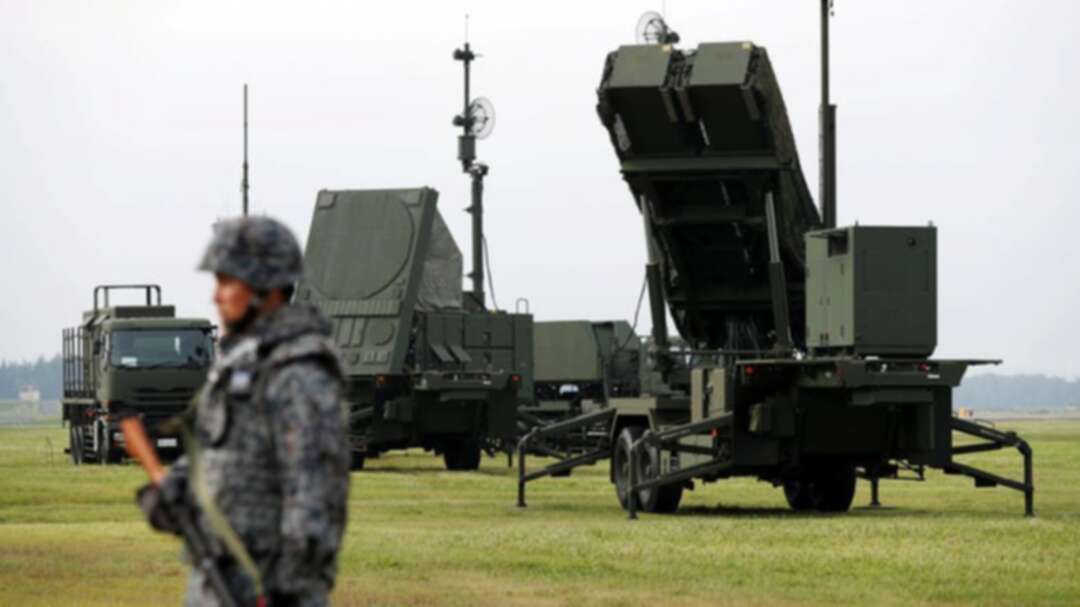-
Japan sees NKorea missile, China space activity as threat

Japan raised its caution level about North Korea’s missile capability, saying in a defense report that the country resumed missile tests while taking no concrete denuclearization steps and had succeeded in making miniaturized warheads.
The annual defense paper, approved Friday by the Cabinet, underscores Japan’s fear of being targeted by its neighbor. Its reaction to the North’s recent tests contrasts to the low-key US response.
“Taking into consideration its technological maturity acquired by nuclear tests, North Korea seems to have already achieved miniaturization of warheads to place atop ballistic missiles,” said the report, which last year only mentioned it as a possibility.
The North is now aiming to further increase missile ranges, improve accuracy and operational and surprise attack capability and diversify launching methods, it said.
North Korea’s military activity “still poses serious and imminent threat” to Japan’s security as well as international peace and safety.
Since the second US-North Korea summit collapsed this year, North Korea has fired 10 short-range missiles and projectiles deemed new and upgraded.
Citing its analysis, the Defense Ministry said they were three new types, including one resembling Russia’s Iskander, and flight distances ranging from 200 kilometers to 600 km . It said the missiles were new and their capability upgraded, and that Japan needs to further strengthen its missile defenses.
North Korean missiles within those flight ranges could strike targets in Japan and South Korea but not the US, which has been the basis for the low-key Trump administration reaction.
Japan’s defense report also noted China’s threat is expanding into space from the regional seas, saying Japan must prioritize space security.
Japan has been bolstering its defense role under its alliance with the US and is now launching a space unit and measures against cyber and electromagnetic attacks.
While many countries are developing their capabilities to ensure their military superiority, China and Russia have been enhancing capabilities to “impede the US and its allies from using outer space,” the report said. It said China and Russia are developing missiles and satellites to destroy satellites or interfere with their communication with the ground. “Threats to stable use of the space are intensifying,” it said.
Even though Japan and South Korea are US allies who face shared threats, the defense report gave South Korea a relegated position.
Their relations deteriorated rapidly since July over wartime history and export controls that spilled over to defense, prompting Seoul to announce in late August it would terminate a bilateral military intelligence pact. In the report, Japan urged Seoul to “wisely respond to secure appropriate cooperation between Japan and South Korea, and among Japan, the US and South Korea.”
The intelligence sharing pact had symbolized the countries’ three-way security cooperation countering North Korea and China.
Japan’s Maritime Self-Defense Force, citing the recent tensions, said it is not inviting South Korea to an international navy review Japan hosts next month.
Tags
You May Also Like
Popular Posts
Caricature
BENEFIT Sponsors BuildHer...
- April 23, 2025
BENEFIT, the Kingdom’s innovator and leading company in Fintech and electronic financial transactions service, has sponsored the BuildHer CityHack 2025 Hackathon, a two-day event spearheaded by the College of Engineering and Technology at the Royal University for Women (RUW).
Aimed at secondary school students, the event brought together a distinguished group of academic professionals and technology experts to mentor and inspire young participants.
More than 100 high school students from across the Kingdom of Bahrain took part in the hackathon, which featured an intensive programme of training workshops and hands-on sessions. These activities were tailored to enhance participants’ critical thinking, collaborative problem-solving, and team-building capabilities, while also encouraging the development of practical and sustainable solutions to contemporary challenges using modern technological tools.
BENEFIT’s Chief Executive Mr. Abdulwahed AlJanahi, commented: “Our support for this educational hackathon reflects our long-term strategic vision to nurture the talents of emerging national youth and empower the next generation of accomplished female leaders in technology. By fostering creativity and innovation, we aim to contribute meaningfully to Bahrain’s comprehensive development goals and align with the aspirations outlined in the Kingdom’s Vision 2030—an ambition in which BENEFIT plays a central role.”
Professor Riyadh Yousif Hamzah, President of the Royal University for Women, commented: “This initiative reflects our commitment to advancing women in STEM fields. We're cultivating a generation of creative, solution-driven female leaders who will drive national development. Our partnership with BENEFIT exemplifies the powerful synergy between academia and private sector in supporting educational innovation.”
Hanan Abdulla Hasan, Senior Manager, PR & Communication at BENEFIT, said: “We are honoured to collaborate with RUW in supporting this remarkable technology-focused event. It highlights our commitment to social responsibility, and our ongoing efforts to enhance the digital and innovation capabilities of young Bahraini women and foster their ability to harness technological tools in the service of a smarter, more sustainable future.”
For his part, Dr. Humam ElAgha, Acting Dean of the College of Engineering and Technology at the University, said: “BuildHer CityHack 2025 embodies our hands-on approach to education. By tackling real-world problems through creative thinking and sustainable solutions, we're preparing women to thrive in the knowledge economy – a cornerstone of the University's vision.”
opinion
Report
ads
Newsletter
Subscribe to our mailing list to get the new updates!






















